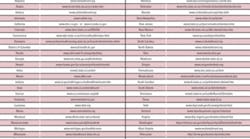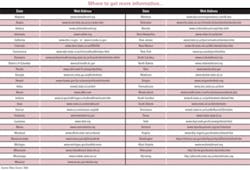By Mary Govoni, RDA, RDH, MBA
Imagine that you and your doctor have just finished preparing a patient’s tooth for a crown. Your doctor instructs you to place the retraction cord, take the final impression and make the temporary crown. Meanwhile, the doctor starts a procedure on another patient. Sound familiar? Probably so - it is a very common occurrence in many dental practices across the country. Some or all of these tasks might be delegated to you by your dentist employer. But is your doctor allowed to delegate these procedures to you? Are you legally allowed to perform these procedures? If you don’t know the answers to these questions, please read on.
Questions regarding delegation and performance of tasks in a professional setting fall into the realm of jurisprudence. That is the science dealing with laws as they are applied to dentistry. Included in this body of knowledge are laws or statutes about the practice of dentistry. As we go about the business of caring for patients each day, we don’t typically think about these laws. Not being aware of and not following these rules, however, may incur some liability for the dentist as well as the dental assistant.
So who’s responsible?
In dentistry, as in other employment settings, employers are responsible for the actions of their employees during the course of employment. This is known as the doctrine of respondent superior (let the master answer). While this means that the dentist is ultimately responsible for the actions of the dental assistants he or she employs, it does not mean that dental assistants are without responsibility for their actions. Assistants tend to believe or assume that because their dentist employer directs them to do something it is appropriate to do so. In most cases that is true, however, many times dental assistants and their doctors are not aware of the rules and requirements that govern what they may and may not do. So who is responsible to know the rules The answer is everyone on the team. First and foremost, it is the dentist’s responsibility to understand the rules that govern the practice of dentistry in their state. It is also the responsibility if each dental assistant to know what the rules allow them to do. The rules will also specify what dental assistants are prohibited from doing, what type of supervision the doctor must provide when they perform the functions, and if there are educational and/or credentialing requirements that must be met in order to perform the functions. Dentists have a legal and ethical obligation to delegate only the functions that assistants are allowed to and capable of performing. Likewise, dental assistants have a legal and ethical obligation to perform only the functions that they are allowed to and capable of performing. In legal terms, a dental assistant who performs functions that are assigned to a dentist or dental hygienist, but not to a dental assistant, has committed a criminal act. This is called the “unlicensed practice of dentistry or dental hygiene.” While it is not common for dental assistants to be prosecuted for this act, it is against the law.
The rules or laws that govern the practice of dentistry are known as a dental practice act. Each state’s practice act is unique and the functions that dental assistants are legally allowed to perform vary widely from state to state. Dental practice acts refer to dental assistants in many ways, as unlicensed persons, dental assistants, licensed dental assistants, registered dental assistants, expanded duty dental assistants and more; depending on the practice act. The rules that govern dentistry refer to functions that dental assistants may perform in two ways. Some rules are written in a positive framework, stating what dental assistants may do, while others state what dental assistants may not do. For each function that a dental assistant may perform, a level of supervision is assigned to that task. These include direct supervision, general supervision and assignment. Direct supervision in most states means that the dentist is physically present in the facility, evaluates the patient and personally authorizes the dental assistant to perform the function, and evaluates the patient after the procedure is completed. General supervision in most states means that the dental assistant may perform the procedure on a patient of record and that the dentist is physically present in the facility. Assignment in most states means that the dentist delegates a procedure to an assistant for a patient of record, and does not need to be physically present in the facility while that procedure is performed. It is more common for dental hygiene procedures to be performed under assignment than dental assisting functions. These definitions of supervision may be slightly different in your state, therefore it is important to review your state’s dental practice act to know what is required.
The good news is...
The good news is that the state dental practice acts are accessible on the Internet so that assistants and dentists can easily obtain this information. The table on the previous page lists the Web addresses for the dental boards in each state. Keep in mind that some states are in the process of updating or amending rules, making it important to check these Web sites on a regular basis (see previous page).
Review your state’s rules and assess your level of compliance. If you have questions regarding some of the functions you perform, discuss them with your dentist employer. If you need additional information to better understand the rules, contact your local or state dental assistant’s association or your local or state dental association. Contact information for your local or state dental assistant’s association is available at www.dentalassistant.org. State and local dental association contact information is available at www.ada.org.
Biographical Sketch
Mary Govoni is a certified and registered dental assistant and a registered dental hygienist with more than 34 years of experience in the dental profession as a chairside assistant, office administrator, clinical hygienist, educator, consultant, and speaker. She is the owner of Clinical Dynamics, a consulting company dedicated to the enhancement of the clinical and communication skills of dental teams. She can be reached at [email protected].







